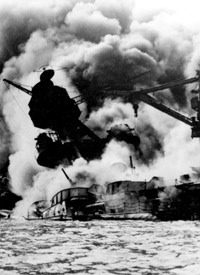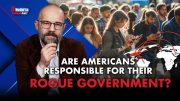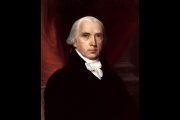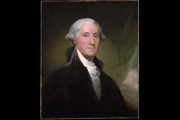
On December 7, 1941, the Japanese Navy launched a surprise attack on Pearl Harbor. But was the surprise attack really a "surprise"? The American military personnel and their commanders at Pearl Harbor were certainly caught by surprise, but the evidence is overwhelming that this was not the case in Washington, D.C.
(Key evidence supporting the above assertion has been summarized by The New American in the past — see in particular Pearl Harbor: Hawaii Was Surprised; FDR Was Not by James Perloff — and will not be repeated here.)
Almost from the time of the attack, many Americans have pointed out how little Pearl Harbor looked like a true surprise:
(1) American sanctions were obviously intended to force Japan’s hand, and FDR had said that he wanted Japan or Germany to fire the first shot against us, as the means of thrusting the United States into World War II;
(2) Japan had a history of launching surprise attacks on enemy navies;
(3) The really critical vessels to our fleet, the fleet carriers, were all out to sea at the time of the attack;
(4) The British attack at Taranto less than a year earlier indicated that carrier based attacks on stationary naval ships worked, and this was studied closely by the Japanese; and
(5) America had been reading the Japanese Diplomatic Code for some time, and out of the three options which it was clear Japan would take — attack Russia, attack Britain, or attack America — the latter choice had specifically been taken.
Pulitzer Prize-winning historian John Toland, in his brilliant book The Rising Sun, describes a "mistake" that may have resulted in the Japanese going ahead with its attack on Pearl Harbor: the diplomatic ultimatum to Japan soon before the attack demanding Japan’s withdrawal from "China," but the precise term employed meant all of China, including Manchuria. In fact, what the American government intended to demand was a withdrawal from China except Manchuria (or Manchukuo). When Toland mentioned this in the mid-1960s to a man who had been a member of the War Japanese Cabinet, the former cabinet member was dumbfounded. Had the diplomatic note been accurately sent, he believed it would have resulted in an indefinite halt to any attack like Pearl Harbor. This is just one of many "mistakes," all of which led to Japan deciding to attack America and catching our antiquated, but conspicuous, battleships helpless.
Another point, less often discussed, was the powerful interest that the Soviet Union had in Japan attacking Pearl Harbor. In the Moscow Show Trials, "Japanese" espionage was as likely a charge as "German" espionage. Stalin went to great pains in 1941 to reach a non-aggression pact with Japan, which he faithfully followed. It was in Stalin’s interest for Japan to attack America. Such an attack would insure that Japan would not attack Russia, which the military leaders of Japan were considering strongly. Because of Pearl Harbor and Japanese-Russian neutrality, Stalin received supplies from America unhindered by Japan; freighters sailed directly into Vladivostok under Lend-Lease.
It almost looks like the Soviets were trying to get Japan and America to exhaust themselves, doesn’t it? Well, if it does, consider this tidbit from decryptions of the “Venona” documents (intercepted messages sent by Soviet intelligence agencies): In October 1941, Richard Sorge, the prize Soviet agent in Japan, advised Moscow, "Japan will attack the United States and England. The danger to the Soviet Union is over." The Soviet government never sent this message to Washington. Instead, while American, British, Australian, and Chinese forces fought and bled to stop Japan, the Soviets stayed out of the war with Japan until the final days of the conflict — invading Manchuria after the atomic bomb was dropped on Hiroshima.
Nothing can diminish the courage and patriotism of the millions of brave Americans who dedicated their blood, sweat, and tears in defense of their country. But it certainly looks like the day that would live in infamy reflected, as much as anything else, the infamous conduct of the Roosevelt administration, which we now know conclusively, was rife with Soviet agents.
Photo of USS Arizona: AP Images
Related articles:
Pearl Harbor: Hawaii Was Surprised; FDR Was Not



